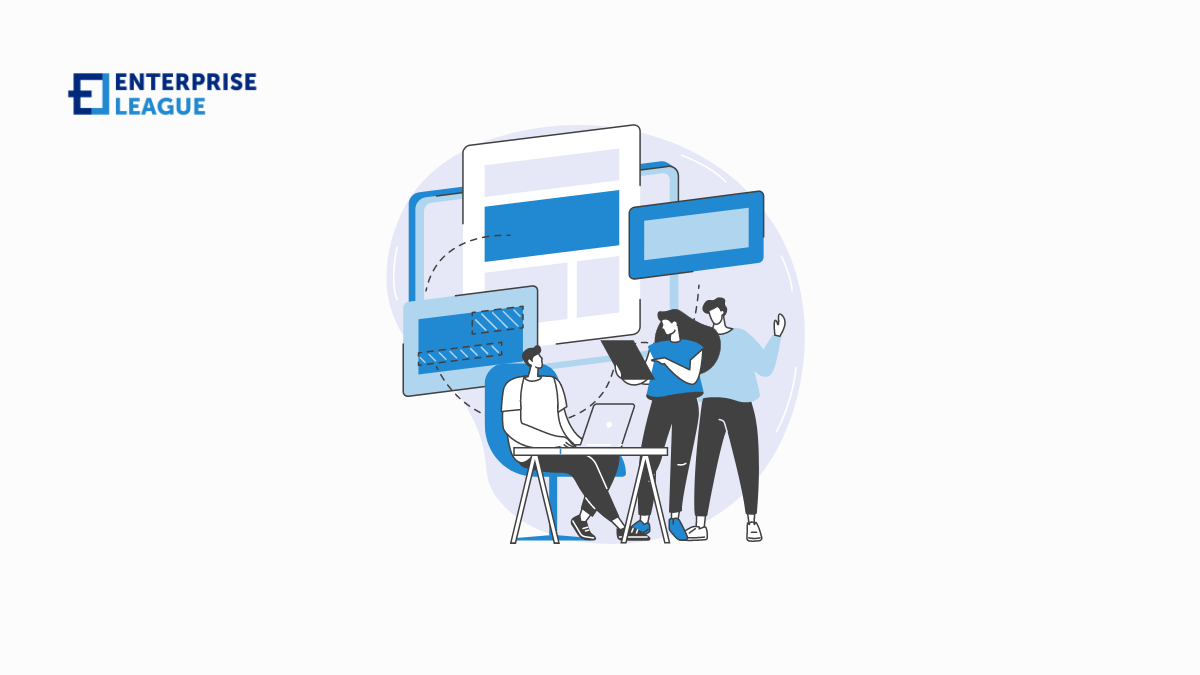Everything you need to know about software development outsourcing
January 30, 2024

Software development outsourcing is when the company transfers the entire cycle or individual stages of IT product development to third-party specialized companies. Software outsourcing is used to increase efficiency and optimize development costs so that a company can focus on its core business.
According to Statista, the revenue in the IT outsourcing market is projected to reach $512.50 billion in 2024. It indicates a rapid growth in the demand for software outsourcing services globally.
The main reasons for software development outsourcing
Companies resort to software development outsourcing for several reasons. Here are the main ones.
Reducing software development costs
Outsourcing allows for optimizing software development costs by 30–60%. It is made possible due to the lower labor costs of IT specialists in some countries. In addition, there is no need to pay salaries to in-house developers between projects.
Access to highly skilled IT talent
Typically, outsourcing companies have many experienced developers specializing in various technologies. It allows you to quickly select a team for any task.
Acceleration of software development
Due to the flexible, scalable outsourcing model, it is possible to significantly reduce software development terms and bring products to market faster. It is achieved due to the parallel work of many developers.
Focus on core business
By outsourcing software development, a company can focus its resources and competencies on developing its core business instead of being distracted by technical tasks. It increases the efficiency of the core business.
How to choose a software development contractor
Choosing a reliable outsourcing partner is crucial to determining the project’s success. Let’s consider the main selection criteria.
Portfolio and feedback analysis
It is necessary to study the company’s experience in developing similar products and assess the number and status of clients. Also, reviews will help you form an objective opinion.
Checking certificates and qualifications of developers
It is essential to verify the professional level of the team: certificates and experience with the required technologies. It will reduce the risk of getting a weak final product.
Comparison of development technologies used
Choosing a partner that uses a modern technology stack that optimally suits the project tasks in terms of functionality, performance, scalability, and cost is necessary.
Analyzing the offered cost of services
You should compare the prices and terms of different outsourcers, analyze the included services, and consider the possibility of price adjustment. It will help in finding the best value for money.
Checking data protection
Determining what guarantees data security and what the contractor can provide is necessary. It is especially relevant when developing finance, e-commerce, and health tech products.
Pricing models in software development outsourcing
- Hourly model. The work is carried out based on hourly payments to specialists of the outsourcing company. Suitable for small tasks or MVP products. Allows for flexible team scaling and budget control.
- Fixed price model. The project’s total cost is agreed upon and kept the same. The risks of budget miscalculation fall on the contractor. The optimal option for medium and large projects with stable requirements.
- Extended development team model. A team is formed from full-time employees and outsourcers. It fills the need for more specific competencies in the company while maintaining control over the process. It is well-suited for startups and small product companies.
Outsourcing has transformed over time from a simple cost-saving tool to a powerful lever for innovation and the strategic development of companies. A hybrid model that combines the strengths of internal and external IT teams may be the optimal solution for many modern companies.
Minimazing software development outsourcing risks
Despite many advantages, outsourcing software development carries certain risks that are important to consider. Let’s assume the main ones and ways to reduce them.
Misunderstanding software requirements and failure to meet deadlines
Due to the lack of communication, the outsourcer may need to be more accurate with the tasks assigned and the customer’s wishes for the software product. This, in turn, leads to the necessity of multiple revisions and a violation of the original project schedule.
To avoid this, it is necessary to formulate the terms of reference as clearly and in detail as possible to state your vision of the finished product. It is also vital to ensure regular communication at all stages of development for prompt clarification of emerging issues.
Exceeding the initially agreed budget
To rule this out, it is essential to specify in the contract the conditions for making amendments to the budget or to use flexible pricing models that allow you to scale the scope of work to meet current demands quickly.
Data leakage and vulnerabilities
To minimize such threats, it is essential to carefully check the data security guarantees of the potential outsourcer, ensure encryption of information transfer channels within the project, and include appropriate terms in the contract.
Loss of internal competencies
Relying solely on external contractors, a company risks losing critical skills and knowledge in developing its digital products over time.
To prevent this situation, it makes sense to train and develop your technical specialists in parallel and involve them in outsourced projects to transfer their experience.
Conclusion
Software outsourcing is a fast-growing and promising market that allows companies to access high-class developers and advanced technologies. However, the maximum benefit of outsourcing can only be realized if the contractor is selected correctly.
By following the best practices and recommendations in this area, you can count on successful software development projects and achieving your business goals with the help of outsourcing.
More must-read stories from Enterprise League:
- Get entertained and educated with some of the best business movies.
- Why hiring millennials might be the best decision you can ever make.
- Getting your product in stores doesn’t have to be complicated.
- Implement a CRM strategy for your business using this guide.
Related Articles
What’s the Best Luxury Powerboat Company? Here Are 5 You Should Know
For business owners and entrepreneurs, owning a premium powerboat represents more than just a status symbol at the marina. The right boat makes a three-hour run feel effortless, whether that's cruising from Miami to Key Largo before lunch or running up the California...
Who Offers Free Roofing Estimates? 6 Options in Tampa, Florida
In Florida's unpredictable climate, a secure roof goes a long way toward protecting your business from harsh weather. Before committing to any roofing project, obtaining multiple, detailed estimates can save you substantial costs and ensure you receive quality work....
How Thoughtful Home Design Supports Better Work and Living
The lines between home and office have blurred. More professionals than ever are working from their dining tables, spare bedrooms, and kitchen counters. As remote and hybrid work become standard practice, the way we design our homes has taken on new importance. A...
What’s the Best Luxury Powerboat Company? Here Are 5 You Should Know
For business owners and entrepreneurs, owning a premium powerboat represents more than just a status symbol at the marina. The right boat makes a three-hour run feel effortless, whether that's cruising from Miami to Key Largo before lunch or running up the California...
Who Offers Free Roofing Estimates? 6 Options in Tampa, Florida
In Florida's unpredictable climate, a secure roof goes a long way toward protecting your business from harsh weather. Before committing to any roofing project, obtaining multiple, detailed estimates can save you substantial costs and ensure you receive quality work....





